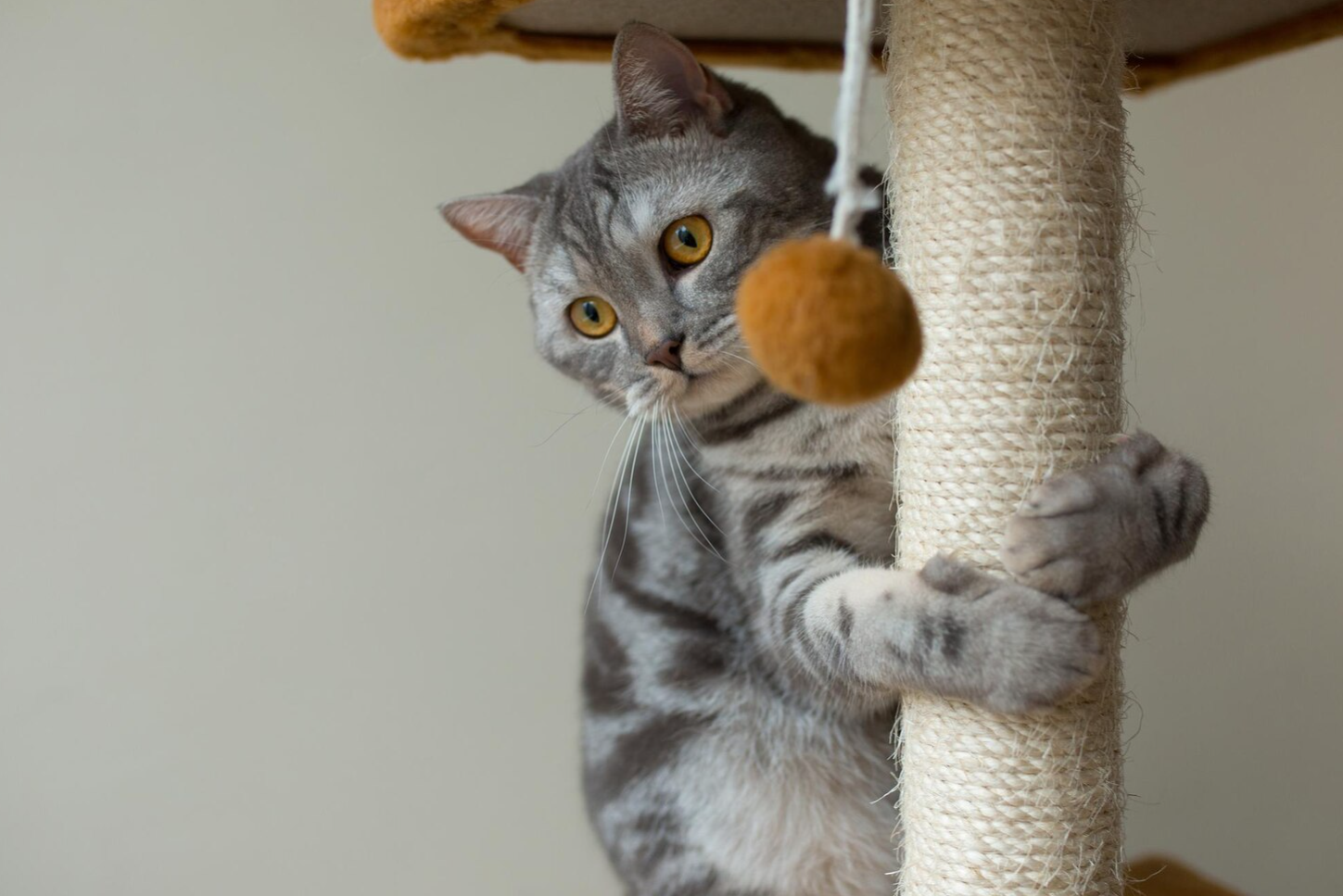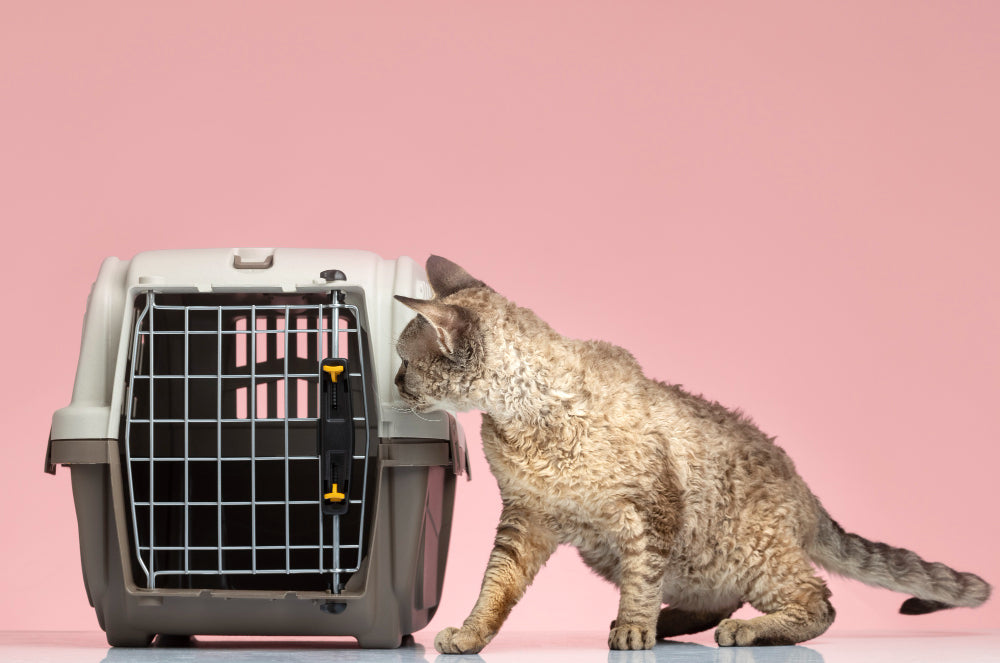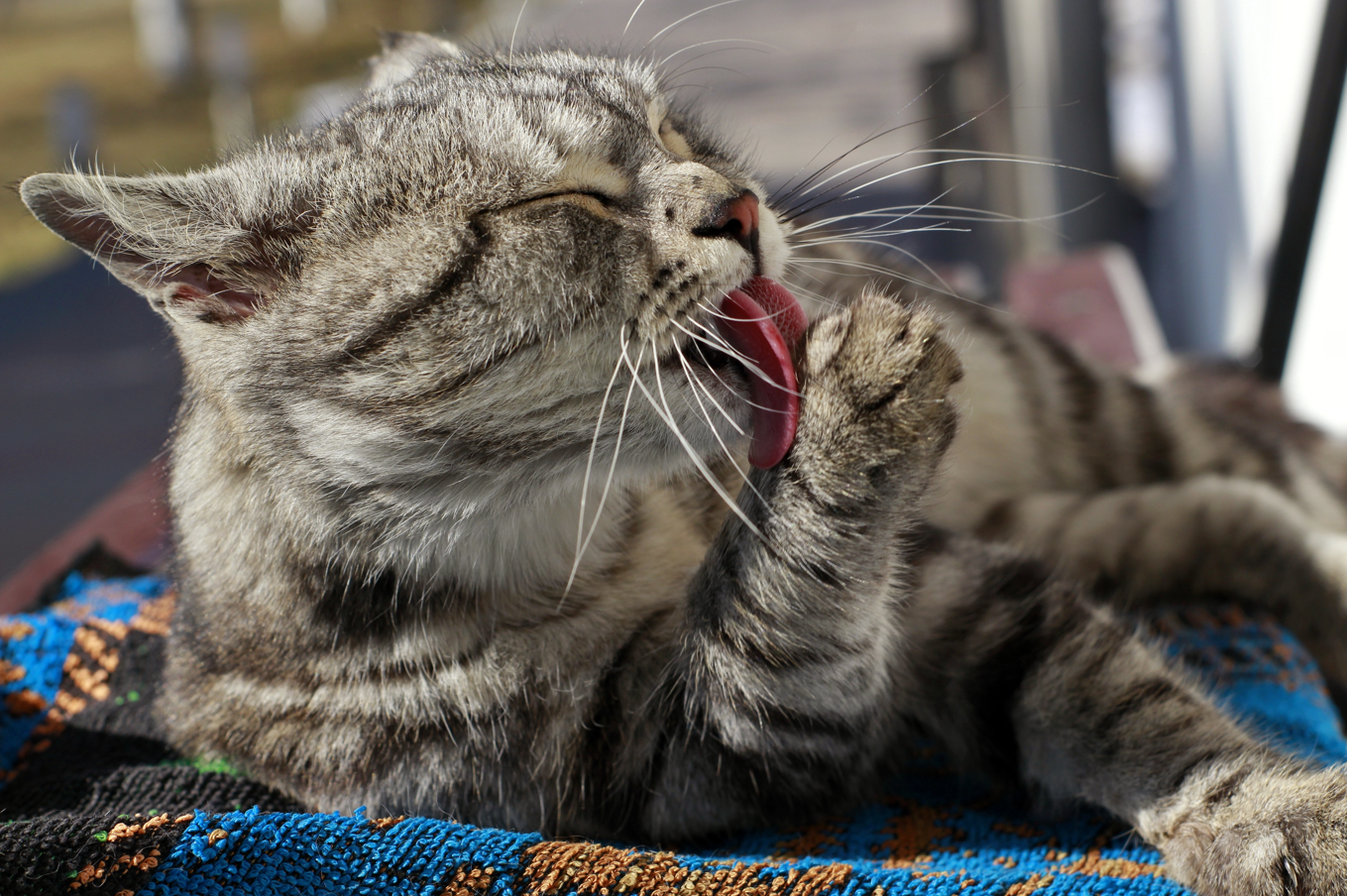
The ideal diet for sterilized or neutered cats
, by Michael van Wassem, 3 min reading time

, by Michael van Wassem, 3 min reading time
When a cat is spayed or neutered, its metabolism changes, and with it, its nutritional needs. Many cats are more likely to become overweight after the procedure, and sometimes also develop urinary tract problems. The right diet helps minimize these risks and keep your cat healthy and energetic. Grain-free cat food is also available, for example. This blog post explains everything about the right diet for spayed or neutered cats. Always consult your veterinarian first.
After spaying or neutering, your cat's energy needs decrease, while its appetite often increases. This increases the risk of obesity. In addition, hormonal changes can lead to increased susceptibility to bladder and kidney problems. A modified diet takes this into account with lower calories, more fiber, and a balanced mineral balance.
High quality proteins
Essential for maintaining muscle mass, even on a lower calorie intake.
Fibres
Provides a feeling of satiety so that your cat will experience hunger less quickly.
L-carnitine
Supports fat metabolism and helps with weight management.
Minerals
A balanced amount of calcium, phosphorus and magnesium helps regulate urine pH and reduces the risk of bladder stones.
Omega 3 and 6 fatty acids
Supports healthy skin and coat.
Both have their advantages. Dry food is practical, has a long shelf life, and is good for teeth. Wet food contains more moisture, which can contribute to healthy bladder function. A combination of both is often the ideal solution: dry food as the basis and wet food as a supplement.
Always follow the recommended daily allowance on the packaging, but also pay close attention to your cat's condition. Monitor its weight and adjust the portions if you notice your cat is becoming overweight or underweight. A veterinarian can help determine its ideal weight.
There are special foods specifically developed for spayed or neutered cats. These contain fewer calories, extra fiber, and sometimes additives like L-carnitine or urine-acidifying minerals. Brands like Advance, Carnilove, and Natural Greatness offer various options to meet these specific needs.
Offer food at fixed times and measure out the portions.
Always provide fresh drinking water, especially with dry food.
Avoid too many snacks; instead, use some kibble from the daily ration as a reward.
Combine exercise with food: play with your cat daily to increase energy expenditure.
The ideal diet for spayed or neutered cats is rich in high-quality protein, contains fewer calories, and helps manage weight. It's also important that the food supports the urinary tract and contributes to a shiny coat and healthy muscles. By consciously choosing a tailored diet, you ensure that your cat can live a healthy, active, and happy life even after spaying or neutering.


